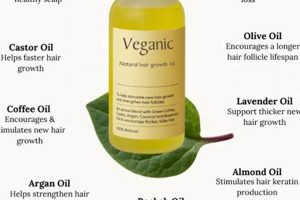The central question revolves around whether a popular gelatin-based dessert aligns with vegan dietary principles. Gelatin, a key ingredient in this dessert, is derived from animal collagen, specifically from the skin, bones, and connective tissues of animals such as cows and pigs. This animal origin is the critical factor in determining its compatibility with veganism. Vegans abstain from consuming any products derived from animals, thus rendering the traditional form of this dessert unsuitable for their dietary practices.
The widespread appeal of this dessert makes understanding its composition important for those adhering to a vegan lifestyle. Knowing its ingredients is crucial for making informed dietary choices. Historically, gelatin has been a common ingredient in various food products, highlighting the need for careful label reading for individuals following a vegan diet. The increased awareness of animal welfare and dietary choices has led to a greater demand for clarity regarding ingredient sources in manufactured foods.
Given the incompatibility of traditional gelatin with veganism, subsequent discussion will focus on plant-based alternatives that mimic the texture and properties of gelatin. The availability of such alternatives allows for the creation of vegan-friendly versions of this dessert, satisfying the desire for a similar treat without compromising ethical or dietary restrictions. Exploring these alternatives provides a practical solution for those seeking to enjoy a similar dessert while maintaining a vegan lifestyle.
This section provides guidance for individuals adhering to a vegan lifestyle when encountering gelatin-based desserts and related products. Vigilance and informed choices are essential to maintaining dietary consistency.
Tip 1: Scrutinize Ingredient Lists: Prior to consumption, meticulously examine the ingredient list of any dessert or food product. Gelatin is often explicitly listed, but may also be present in less obvious forms.
Tip 2: Identify Alternative Names: Be aware of potential alternative names for gelatin. While less common, terms referring to processed animal collagen might be used. Cross-referencing unfamiliar terms with reliable vegan resources is recommended.
Tip 3: Inquire at Restaurants: When dining out, proactively inquire about the ingredients used in desserts and other dishes. Staff should be able to provide information regarding the presence of gelatin or other animal-derived products.
Tip 4: Seek Certified Vegan Products: Look for products bearing certified vegan labels. These certifications indicate that the product has been verified to be free of animal-derived ingredients, offering a degree of assurance.
Tip 5: Explore Plant-Based Alternatives: Familiarize yourself with plant-based gelling agents, such as agar-agar, carrageenan, and pectin. These can be used to create vegan versions of gelatin-based desserts at home.
Tip 6: Be Mindful of Cross-Contamination: In settings where both vegan and non-vegan products are prepared, consider the potential for cross-contamination. Inquire about preparation practices to minimize risk.
Tip 7: Educate Others: Share accurate information regarding gelatin and its animal origin with friends, family, and acquaintances. Increased awareness can facilitate better dietary choices and options.
Adherence to these guidelines enables individuals to navigate dietary choices effectively and maintain consistency with vegan principles. Prioritizing careful ingredient evaluation and proactive communication is paramount.
The subsequent sections will explore readily available vegan alternatives for this dessert and provide practical recipes for creating homemade, ethically sourced versions.
1. Animal collagen source
The fundamental incompatibility between traditional gelatin-based desserts and veganism arises directly from the animal collagen source used in gelatin production. This collagen, derived from animal tissues, represents the core element defining whether such desserts align with vegan dietary restrictions.
- Collagen Extraction Process
Gelatin production involves extracting collagen from animal by-products, primarily the skin, bones, and connective tissues of cows and pigs. This extraction is typically achieved through a process of boiling, acid treatment, or alkaline treatment, breaking down the collagen structure and converting it into a soluble form. This extraction methodology inherently conflicts with vegan principles, which exclude all products derived from animals.
- Tissue Origins and Implications
The specific animal tissues used in gelatin production are often considered waste products from the meat industry. While some may view this as a form of resource utilization, the vegan perspective emphasizes the ethical objection to using any animal parts, regardless of their initial purpose. The source of the collagen directly links the finished product to animal exploitation, thereby rendering it non-vegan.
- Processing and Purity Concerns
During the gelatin manufacturing process, various chemicals and treatments are employed to purify and standardize the final product. While these processes aim to produce a food-grade ingredient, they do not alter the fundamental fact that the starting material is of animal origin. Any residual chemicals or impurities also do not alter the animal-derived nature.
- Vegan Alternatives and Market Impact
The awareness of gelatin’s animal source has driven demand for plant-based alternatives, such as agar-agar, carrageenan, and pectin. The increased availability and acceptance of these alternatives have challenged the dominance of traditional gelatin, creating opportunities for vegan-friendly desserts and food products. The vegan options provide alternatives with very similar texture and application.
Understanding the extraction process and ethical considerations surrounding the animal collagen source is paramount in evaluating whether traditional desserts are consistent with a vegan lifestyle. The existence and increasing popularity of plant-based substitutes further underscore the possibility of enjoying similar culinary experiences without compromising vegan principles. The conscious avoidance of animal-derived gelatin remains a key aspect of vegan dietary adherence, fueled by informed choices and ethical considerations.
2. Gelatin as ingredient
The defining characteristic of traditional gelatin-based desserts, specifically concerning its alignment with veganism, is the presence of gelatin itself as a primary ingredient. The physical and chemical properties of gelatin contribute directly to the dessert’s texture, structure, and overall appeal. Absence of gelatin, or substitution with a plant-derived alternative, fundamentally alters the product, leading to a clear divergence from the conventional non-vegan formulation. The gelatin element is a critical determinant; its presence immediately classifies the dessert as non-vegan.
The role of gelatin extends beyond mere texture enhancement. It functions as a gelling agent, providing the necessary firmness and shape retention. Real-world examples are abundant: fruit-flavored desserts, marshmallows, and gummy candies, all heavily reliant on gelatin for their characteristic consistency. Consequently, a person adhering to a vegan diet must conscientiously assess ingredients to ensure the omission of gelatin. The presence of gelatin directly negates the “vegan” status.
Ultimately, understanding gelatin’s function is essential for vegan consumers. The knowledge informs dietary choices, facilitating the identification and avoidance of products containing this animal-derived ingredient. This information empowers individuals to make informed decisions consistent with their ethical and dietary beliefs. The lack of transparency about gelatin’s presence in ingredient lists, even when present in small quantities, necessitates a heightened awareness for those maintaining a vegan lifestyle. Furthermore, actively seeking certified vegan alternatives contributes to a more sustainable and ethical food system.
3. Vegan alternatives exist
The existence of vegan alternatives directly addresses the question of whether a gelatin-based dessert can align with vegan principles. Since traditional gelatin derives from animal sources, its presence disqualifies the dessert from vegan consumption. However, the availability and increasing prevalence of plant-based gelling agents provide viable options for creating vegan-compatible versions.
- Agar-Agar as a Substitute
Agar-agar, derived from seaweed, presents a common vegan substitute for gelatin. Its gelling properties, activated by boiling and subsequent cooling, allow for achieving similar textures to those produced by gelatin. Agar-agar finds application in creating vegan desserts, aspics, and other culinary items. Its primary advantage lies in its non-animal origin, rendering it suitable for vegan diets.
- Carrageenan’s Textural Contributions
Carrageenan, another seaweed extract, offers a different textural profile compared to agar-agar. It contributes a softer, more elastic gel, making it suitable for desserts requiring a smoother consistency. Carrageenan is found in vegan puddings, ice creams, and other creamy desserts where a softer mouthfeel is desired.
- Pectin and Fruit-Based Gelling
Pectin, naturally present in fruits, especially apples and citrus peels, serves as a gelling agent, particularly in jams and jellies. While it may not perfectly replicate the texture of gelatin in all applications, it provides a vegan-friendly option for creating fruit-based desserts with a firm consistency. It is a common ingredient in creating vegan-friendly jam fillings for pastries.
- Modified Starches as Thickeners
Modified starches, while not directly gelling agents like agar-agar or carrageenan, can contribute to the texture and thickness of vegan desserts. They are often used in conjunction with other gelling agents to achieve the desired consistency. These starches can be sourced from various plants, including corn, tapioca, and potato, ensuring they remain vegan-compatible.
These plant-based alternatives directly address the ethical and dietary concerns associated with traditional gelatin. The increased availability and understanding of these substitutes allow vegan consumers to enjoy a wider range of desserts and culinary creations without compromising their principles. Furthermore, the ongoing development of new and improved plant-based gelling agents promises to further expand the possibilities for vegan desserts in the future.
4. Label reading essential
The necessity for thorough label examination directly arises from the question of whether a dessert aligns with vegan dietary standards. Gelatin, an animal-derived ingredient, is a primary consideration in determining the vegan status of various desserts. Therefore, meticulous scrutiny of product labels is paramount for individuals seeking to avoid non-vegan ingredients.
- Gelatin Identification
The primary objective of label reading, in this context, is to identify the presence of gelatin. This ingredient, derived from animal collagen, is explicitly non-vegan. Its inclusion in the ingredient list immediately disqualifies a product from vegan consumption. Consumers must scan labels meticulously to detect this specific ingredient, irrespective of its placement or font size.
- Hidden Animal Derivatives
While gelatin is often clearly labeled, some products may contain less obvious animal derivatives that necessitate careful scrutiny. Ingredients such as “collagen peptides” or “hydrolyzed collagen” also indicate animal origins, requiring the same level of avoidance as gelatin itself. Unfamiliar ingredients should be researched to ascertain their source and suitability for vegan diets.
- Vegan Certification Seals
The presence of a vegan certification seal on a product label offers a level of assurance regarding its compliance with vegan standards. These certifications, issued by recognized organizations, signify that the product has undergone independent verification to ensure the absence of animal-derived ingredients. However, even with certification, careful label review remains prudent to confirm the absence of any potentially problematic ingredients.
- “May Contain” Statements and Cross-Contamination
“May contain” statements, indicating potential cross-contamination with animal products during manufacturing, present a complex consideration for vegan consumers. While the product itself may not contain gelatin or other animal ingredients, the risk of trace amounts being present due to shared equipment or facilities may lead some individuals to avoid such products. The decision to consume products with “may contain” statements is a personal one, based on individual risk tolerance and ethical considerations.
Ultimately, label reading constitutes a fundamental practice for individuals seeking to maintain a vegan lifestyle. Thorough inspection of ingredient lists, awareness of hidden animal derivatives, and cautious interpretation of “may contain” statements are crucial for making informed dietary choices. While vegan certification seals can provide some assurance, they do not replace the need for independent verification through careful label review. Diligent label reading empowers consumers to avoid animal-derived ingredients and ensure their dietary choices align with their ethical and lifestyle principles.
5. Ethical dietary choice
The alignment of a dessert with the concept of an ethical dietary choice directly influences its acceptability within specific dietary frameworks, particularly veganism. The central consideration focuses on the source and nature of the ingredients used in the dessert’s production. Because traditional gelatin is derived from animal collagen, its inclusion raises fundamental ethical questions for those adhering to a vegan lifestyle. This ingredient’s origin is the critical determinant in whether the dessert aligns with an ethically driven dietary choice. For example, a vegan concerned with animal welfare would inherently reject the consumption of any product containing gelatin, regardless of its other qualities or appeal.
The ethical dimension extends beyond simply avoiding animal products. It also encompasses considerations of animal welfare, environmental sustainability, and the overall impact of food production systems. An ethically motivated consumer might, therefore, seek out alternatives that not only exclude animal-derived ingredients but also minimize environmental impact. This preference is evidenced by the increasing demand for plant-based alternatives, such as agar-agar and carrageenan, which offer comparable gelling properties without the ethical concerns associated with animal collagen. For instance, choosing a dessert made with sustainably sourced agar-agar aligns with a broader commitment to ethical consumption and environmental responsibility.
In summary, the decision regarding the suitability of a dessert, particularly concerning the “is jello vegan” question, is fundamentally linked to ethical considerations. The avoidance of animal-derived ingredients, specifically gelatin, represents a core principle for many vegans. Further, extending the ethical framework to encompass environmental and sustainability concerns leads to a preference for plant-based alternatives. The ultimate choice reflects an individual’s commitment to aligning dietary habits with broader ethical beliefs, making the selection of a dessert more than just a matter of taste but a tangible expression of personal values.
Frequently Asked Questions
The following section addresses common inquiries and clarifies misconceptions regarding the vegan compatibility of a popular dessert and related topics. Information presented is intended to provide clear and factual guidance for informed decision-making.
Question 1: What is the primary reason traditional types are not considered vegan?
Traditional varieties are not vegan due to the presence of gelatin, an ingredient derived from animal collagen. Veganism excludes all animal-derived products, rendering traditional types unsuitable.
Question 2: Are there plant-based alternatives available that mimic the texture and properties of gelatin?
Yes, various plant-based alternatives, such as agar-agar, carrageenan, and pectin, can replicate the gelling properties of gelatin. These ingredients are derived from seaweed or fruits and offer vegan-compatible substitutes.
Question 3: How can an individual confirm whether a specific dessert contains gelatin?
The most reliable method is to meticulously examine the product’s ingredient list. Gelatin will typically be explicitly listed as an ingredient. In cases where the ingredient list is unclear, contacting the manufacturer for clarification is advised.
Question 4: Do products labeled as “vegetarian” automatically qualify as vegan?
No, products labeled as “vegetarian” are not necessarily vegan. Vegetarian diets may permit the consumption of dairy and eggs, while veganism excludes all animal products, including dairy, eggs, and gelatin. Therefore, verifying the absence of gelatin is still required for a product to be considered vegan.
Question 5: Are there any potential health concerns associated with consuming gelatin alternatives like agar-agar or carrageenan?
Generally, agar-agar and carrageenan are considered safe for consumption in moderate amounts. However, individuals with pre-existing digestive sensitivities may experience mild gastrointestinal discomfort. Consulting a healthcare professional is recommended for individuals with specific health concerns.
Question 6: Are there any ethical considerations beyond animal welfare that may influence dietary choices regarding gelatin?
Yes, some individuals may consider the environmental impact of animal agriculture when making dietary choices. Choosing plant-based alternatives to gelatin can align with a broader commitment to sustainable food systems and reduced environmental footprint.
In summary, the “is jello vegan” question hinges on the presence of gelatin, an animal-derived ingredient. Plant-based alternatives offer viable options for those adhering to vegan principles. Careful label reading and informed decision-making are essential for ensuring dietary choices align with ethical considerations.
The following section will explore practical recipes and resources for creating homemade vegan-friendly versions of this dessert.
Conclusion
The preceding exploration has definitively established that traditional formulations are not vegan. The presence of gelatin, derived from animal collagen, fundamentally conflicts with vegan dietary principles. While numerous factors contribute to dietary choices, the animal origin of gelatin remains the critical determinant in assessing the vegan compatibility of this dessert.
The availability of plant-based alternatives offers a viable pathway for those seeking to enjoy similar desserts without compromising ethical or dietary commitments. Vigilance in label reading, coupled with a clear understanding of ingredient origins, empowers informed decision-making. The growing demand for vegan options underscores a broader shift toward conscious consumption and ethically sourced foods, suggesting continued innovation and wider availability of vegan-compatible dessert alternatives in the future.







